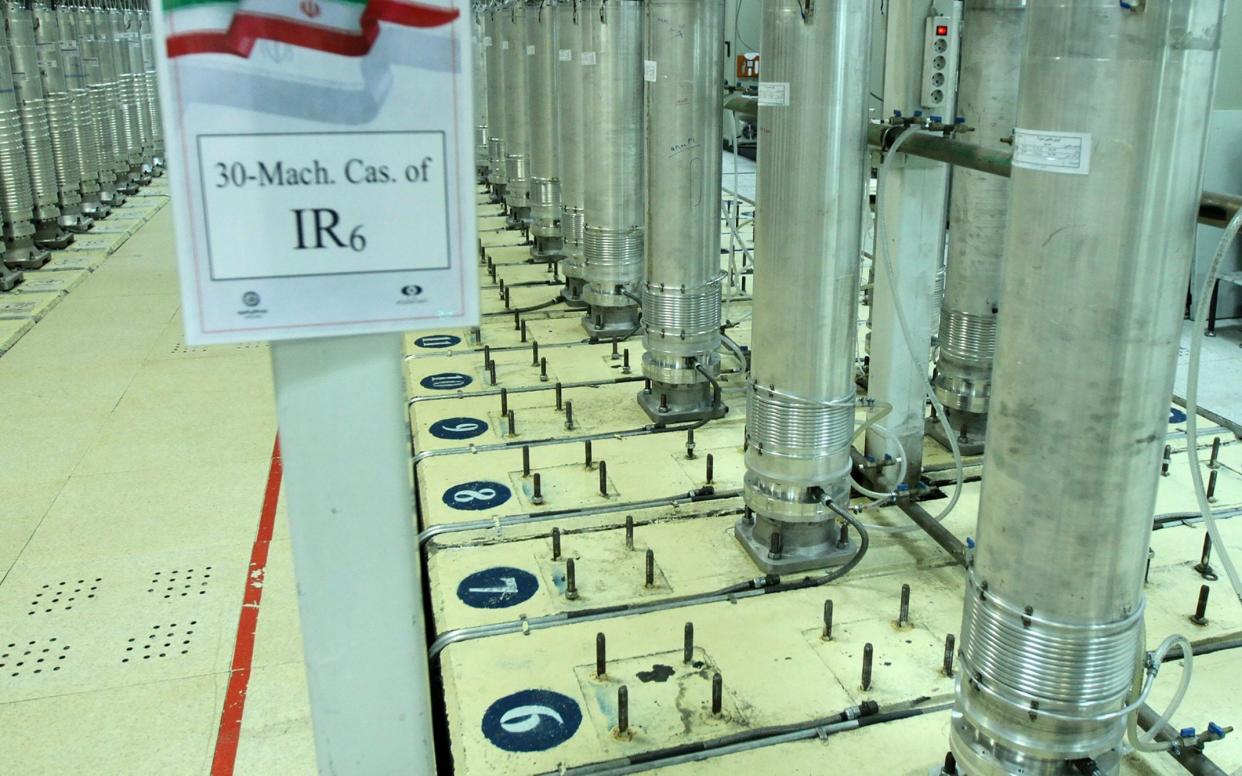Iran to enrich uranium to 60 per cent, upping ante for nuclear talks

- Oops!Something went wrong.Please try again later.
Iran said Tuesday it would dramatically increase its uranium enrichment levels in response to an attack on its Natanz nuclear facility, a further breach of its nuclear deal with world powers that ongoing talks are struggling to salvage.
Iranian Deputy Foreign Minister Abbas Araghchi, who is leading negotiations in Vienna on saving the nuclear deal, said Tehran would begin enriching uranium to 60 per cent purity on Wednesday, according to state TV, up from the 20 per cent it is currently producing.
Tehran has informed the United Nations' International Atomic Energy Agency, which declined to comment.
The 2015 Joint Comprehensive Plan of Action limited enrichment to 3.67 per cent but Iran has progressively reduced its adherence to the pact since former president Donald Trump unilaterally withdrew the United States three years ago.
Enrichment of this level is still short of the 90 per cent needed to produce nuclear weapons. There are civilian applications for highly enriched uranium, including for research and fuel for nuclear-powered ships.
Mr Araghchi cited medical purposes as the ostensible reason for the 1,000 new centrifuges that he said would be added to the Natanz facility, which was damaged in an apparent sabotage attack last week that Iran blamed on Israel.
Foreign Minister Javad Zarid said on Tuesday that Israel had made a "very bad gamble if it thought that the attack will weaken Iran’s hand in the nuclear talks. On the contrary, it will strengthen our position.” Israel has not formally commented on the incident.
Iran promised revenge for the attack. The move to increase enrichment – which could enable Iran’s growing uranium stockpile to be further enriched to weapons-grade in a shorter time frame – will up the ante for talks in the Austrian capital this week.
One of the core aims of the 2015 deal was to extend the time the Islamic Republic would need to accumulate enough fissile material to produce an atomic warhead from less than three months to a year. Iran denies it seeks nuclear weapons.
The remaining signatories to the agreement – Iran, the UK, France, Germany, Russia, and China – are discussing a US return to the pact. A delegation from Washington is in Vienna but is not meeting directly with Iranian officials.
Israel vehemently opposes the United States returning to the agreement, arguing instead for a new deal that addresses Iran’s ballistic missile programme and its support for proxy forces across the region, which have carried out attacks on shipping and Saudi Arabia.
On Tuesday, Iranian-backed al-Alam TV reported that an Israeli-owned vessel was struck off the coast of Fujairah in the United Arab Emirates. There were no reported casualties and no immediate claim of responsibility.
The Bahamas-flagged Hyperion Ray, which is owned by Tel Aviv-based Ray shipping company, was struck by an Iranian ballistic missile, causing minor damage, security sources told Israeli broadcaster Channel 12 news.
Iran and Israel have reportedly been engaged in tit-for-tat strikes on shipping in the region for months, while Tehran accuses Israel of a spate of audacious strikes on its nuclear programme inside Iran.

